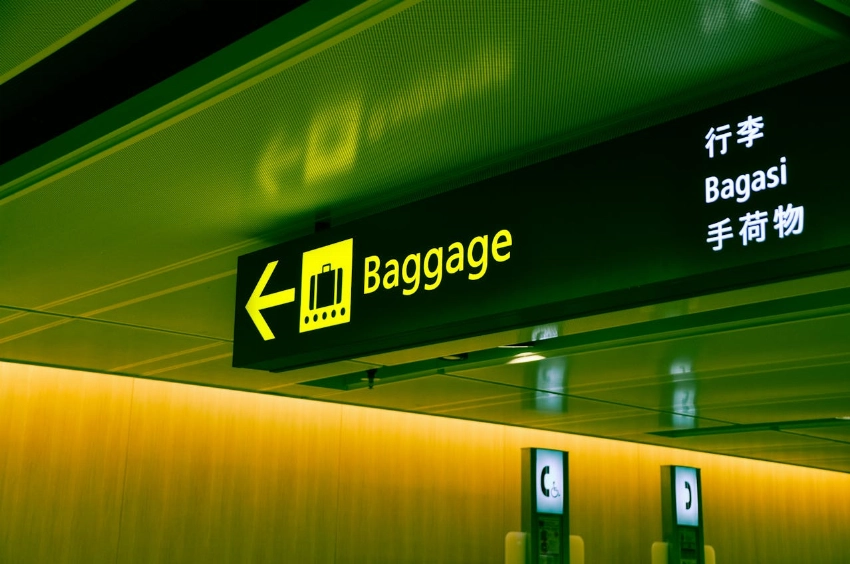Key Highlights
- Top 10 PTE Accepted Colleges in Canada 2025: Updated List
- Understanding PTE Acceptance in Canada 2025
- What are the PTE Score Requirements by Canadian Province and Institution Type?
- Minimum PTE Score Requirements for Canadian Student Visa 2025
- PTE Accepted Colleges by Study Program in Canada 2025
- What is the Application Process and Deadlines for PTE Accepted Colleges in Canada 2025?
- Latest Cost Analysis and Financial Planning for PTE Accepted Colleges in Canada 2025
- Success Stories and Student Experiences at PTE Accepted Colleges in Canada
- Latest Facts and News
- Conclusion
PTE accepted colleges in Canada 2025 is no longer a niche alternative, but a mainstream way in to studying in Canada: by 2025, the test will be accepted at nearly 90 per cent of Designated Learning Institutions (DLIs) in the country, and is officially endorsed by Canadian study visas since January 2024. This increased confidence is reflected around the world, with test volume increased approximately 50 per cent in 2023, with over one million students taking PTE.To international students, the change creates obvious benefits: a completely computer-based test, results available within 48 hours, and entry to Canadian college and university systems with over 1,500 institutions without relying solely on IELTS or TOEFL scores as benchmarks.
Top 10 PTE Accepted Colleges in Canada 2025: Updated List

The education sector, with great enthusiasm, is generating varied avenues of international students at all academic PTE accepted colleges in Canada 2025. Canadian universities, ranging from internationally recognised research institutions to local and hands-on community colleges, now accept PTE scores as an alternative to English proficiency assessments, making Canadian institutions both flexible and accessible to international students everywhere.
Leading Canadian Universities Accepting PTE Scores in 2025
Elite universities of the country already include PTE accepted colleges in Canada 2025 in their admission process, so international learners have more opportunities to access higher education in Canada. These are colleges that combine academics with competitive PTE scores.
|
University |
Location |
QS World Ranking |
Min. PTE Score |
Popular Programs |
|
University of Toronto |
Toronto, Ontario |
#21 |
65 |
Computer Science, Medicine, Business |
|
University of British Columbia |
Vancouver, BC |
#38 |
65 |
Engineering, Sciences, MBA |
|
McGill University |
Montreal, Quebec |
#30 |
65 |
Medicine, Law, Computer Science |
|
University of Alberta |
Edmonton, Alberta |
#111 |
68 |
Engineering, MBA, Health Sciences |
|
McMaster University |
Hamilton, Ontario |
#152 |
60 |
Health Sciences, Engineering, Business |
|
University of Waterloo |
Waterloo, Ontario |
#112 |
63 |
Computer Science, Engineering, Mathematics |
|
University of Ottawa |
Ottawa, Ontario |
#203 |
68 |
Business, Public Administration, Medicine |
|
University of Calgary |
Calgary, Alberta |
#182 |
68 |
Engineering, Medicine, Veterinary Medicine |
|
Western University |
London, Ontario |
#114 |
55 |
Business, Medicine, Engineering |
|
Queen's University |
Kingston, Ontario |
#209 |
60 |
Business, Medicine, Law |
Best Community Colleges with PTE Acceptance in Canada 2025
The PTE accepted colleges in Canada 2025 community offer career-oriented education, are more open to getting admission and the costs of education there are far less. These types of institutions are perfect when it comes to immediate employment or unhindered transfer of students to universities.
|
College |
Location |
Min. PTE Score |
Annual Tuition (CAD) |
Popular Programs |
|
Seneca College |
Toronto, Ontario |
58 |
$16,500-$18,000 |
Business, IT, Aviation |
|
Centennial College |
Toronto, Ontario |
58 |
$15,000-$17,500 |
Engineering Technology, Health Sciences |
|
George Brown College |
Toronto, Ontario |
60 |
$16,000-$18,500 |
Culinary Arts, Hospitality, Business |
|
Humber College |
Toronto, Ontario |
60 |
$15,500-$17,000 |
Media Studies, Business, Health |
|
Fanshawe College |
London, Ontario |
59 |
$14,500-$16,500 |
Applied Arts, Technology, Health |
Also Read: How Many PTE Scores Are Required for a Canada Student Visa? Get the Answers Here
Understanding PTE Acceptance in Canada 2025
The PTE accepted colleges in Canada 2025 are as follows:
-
Near-Universal Institutional Acceptance: PTE accepted colleges in Canada 2025 gains near universal acceptability in Canada, such that now more than 90 per cent of Canadian Designated Learning Institutions accept PTE Academic scores, one of the highest acceptance rates in the world.
-
Government Approval: Since the fall of 2022, PTE accepted colleges in Canada 2025 has been released as a means of official Canadian student visa application. Government approval is now officially accepting PTE academic, starting in January 2024, under the removal of regulatory constraints previously in place.
-
University-wide Acceptance: 99 per cent-plus of universities in Canada accept PTE scores as valid English proficiency evidence, including prestigious universities such as the University of Toronto and the University of British Columbia
-
Faster Student Uptake: International students have increased their use of PTE by 22 per cent in Q1 2024, when compared to the corresponding period of 2023, which shows the rising confidence that students are gaining in the test
-
International Proliferation: The number of test-takers of PTE has grown by around 50 per cent annually to more than one million individuals across the globe in 2023, which shows proliferation in international acceptability
Why PTE is Gaining Popularity Among Canadian Institutions?
PTE accepted colleges in Canada 2025 are gaining popularity and are as follows:
-
Unbiased Scoring: With a computer-based assessment, there is no scorer subjectivity, hence there is no variation in the score regardless of the test session that is administered in Canadian academic institutions.
-
Fast Results: PTE accepted colleges in Canada 2025 deliver the results within 48-72 hours compared to 13 days in the case of IELTS, and this will facilitate the timely delivery of the results, leading to better management of deadlines in applications made
-
Improved Security Standards: Contemporary biometric verification, palm vein, and digital ID identification can solve examination fraud mega problems and assure the institutions of verifiable, optimal results
-
Flexible Testing Schedule: 360-day availability every year, so students can take exams when it is convenient; no stress factor and better performance results
-
Affordable Examination: PTE test expenses in most places in Canada are 15-20 per cent cheaper than IELTS, which further enables students with a global background to have access to an education.
-
Integrated Skills Evaluation: A Distinct multiple-skill evaluation model offers institutions in-depth knowledge of students' language abilities after a series of tasks, and multiple skills are checked at the same time.
What are the PTE Score Requirements by Canadian Province and Institution Type?

-
Tiered Score Structure: Canadian institutions are based on overall norms of 45-50 on diploma, 50-60 on the undergraduate degrees and 60-70 on postgraduate levels, with the related sectional minimums
-
Patterns of Provincial Variation: Ontario and British Columbia have sustained high score cut-offs (60- 65+) because of competitive pressure, whereas Maritime and Prairie provinces have easier entry points (45-59).
-
Differences in Institution Types: The research university should have scores overall of 60-70, the community college 50-60 and the specialised technical institutes may have requirements per program that start as low as 45
-
Sectional Score Weight: Balanced performance across the four skills is usually expected in most institutions, yet there are minimums in most writing and speaking areas in programs which involve heavy communication use
-
Adjustments to Specific Programs: Medicine, Engineering, etc., competitive programs require higher scores (65-70+) and non-competitive general arts and business programs use standard institutional minimums.
Ontario Colleges and Universities in which PTE Would Have Been Accepted
The Ontario colleges and universities in which PTE would have been accepted:
-
University Tier Requirements: The best schools, such as the University of Toronto (65 overall), McMaster (60), and Waterloo (63), uphold premium standards because of their name and reputation in the world and tough competition in their admissions
-
Community College Access: Centennial College has the most open 51+ diploma entry, whereas Seneca, George Brown and Humber all set 58-60 as the most programs' entrance requirements
-
Toronto Market Concentration: The highest international enrollment institutions in the Greater Toronto Area have the most diverse programs available, but demand high PTE scores since there is not a lot of supply
-
Sectional Balanced Requirements: The requirements of a minimum score of 55-60 in any PTE section are mandatory in Ontario institutions, as a balance of skills is needed to make the students academically ready
-
Pathway Program Options: Many colleges accept conditional entry, English bridging programmes to students who score marginally (10 or 5 points) below the minimum standard
British Columbia Institutions Accepting PTE
The British Columbia institutions accepting PTE:
-
Research University Standards: UBC (65 overall) and SFU (65) have among the most stringent requirements, whereas the University of Victoria (60) offers more open access to a high-quality education.
-
Regional Institution Flexibility: Thompson Rivers University (59) and University of the Fraser Valley (61) have equally good alternatives with lower minimum scores and smaller class sizes.
-
Community College Pathways: College pathways to the larger universities are Douglas College (56) and Vancouver Island University (60), both of which have fewer barriers to entry
-
Niche Program: BC institutions focus on university programs in environmental sciences, forestry, and technology, which appeal to international students who have definite career interests
-
Pacific Rim Advantage: Solid location, Vancouver offers distinct Asian-Pacific business and cultural ties, and greater PTE results are worth career opportunities
Other Provincial Options for PTE Students
Other provincial options for PTE students:
-
Prairie Province Value: As institutes such as the University of Manitoba (45-50) and Saskatchewan establishments have an extremely high academic quality of education at much lower PTE and tuition fee expenses
-
Balanced Approach in Alberta: The University of Alberta (61-68) and the University of Calgary (59-65) achieve research excellence while maintaining reasonable admission standards and operations in the energy sector.
-
Maritime Accessibility: At Cape Breton University (59) and University of New Brunswick (58-65), students have an intimate learning experience with more affordable living and a distinct Atlantic culture
-
The Bilingual Chance in Quebec: Quebec benefits from an environmental multiculturalism with lower PTE credentials at Concordia University (61) compared to the higher prestige credentials at McGill University (65)
-
New Provincial Programs: Emerging Provincial Programs: Less competitive provinces develop more programs with international student support that are specialised in agriculture, natural resources, and technology.
Also Read: PTE Essay Topics & Answers: Tips, Topics & Strategies
Minimum PTE Score Requirements for Canadian Student Visa 2025
The minimum PTE score requirements for Canadian student visa are:
-
Formal Government Acceptance: PTE accepted colleges in Canada 2025 were formally accepted to be used in the application of student visas to Canada, commencing January 2024 and offering an authorised alternative to IELTS and TOEFL to be used by Immigration, Refugees and Citizenship Canada (IRCC)
-
General Score Tiers: The minimum score is overall 45 (diploma program), 50 (undergraduate degree) and 65 (postgraduate program), with the sectional score minima as well
-
Two-Year Validity Period: PTE accepted colleges in Canada 2025 test scores have a two-year validity period on student visa applications, can be taken only in-person in authorised testing centres and digital versions cannot be accepted
-
Dual Requirements Compliance: Students should see that the PTE scores have to be in line not only with institutional admission criteria but also with the IRCC immigration minimum knowledge requirements, whereby competitive programs call upon higher scores than the basic minimum requirements
-
Post-Graduation: It could be advantageous in terms of a post-graduation work permit and future permanent residence through higher PTE scores.
-
Minimum Acceptable Range: The range required by most Canadian institutions is 58-70 overall PTE scores, with competitive ones needing scores toward the higher end of the range
Canadian Universities Undergraduate Program PTE Requirements
Undergraduate program PTE requirements:
-
Standard Score Range: The general competency level needed by undergraduate studies is 50-65 overall PTE average scores and a sectional minimum average of 45-55, though this varies depending on the competitiveness of the program and the communication-intensive nature of the requirements
-
Differences in Program Category: General pleas of 50-55 on average, competitive STEM pleas of 55-65 and other, more narrow categories (ex, Architecture or Journalism) pleas of 60-65 with stiffer individual sectional requirements
-
Community College Accessibility: The community college options are the more amenable onset points with absolute minimal requirements of only 45-50 in everything, and are perfect blinds into university transfers
-
Communication-intensive Programs: The programs related to business and communication usually incorporate 58-65 in general, and especially the preparation of speaking and writing skills to become a professional.
-
University Specific: The top-ranked universities, like the University of Toronto (65), McMaster (60), and Waterloo (63), have high-end standards. This is because global ratings and competition define these criteria in the process of getting admission.
-
Sectional Balance Value: The section balance is vital in most undergraduate programs, and it is set at a minimum of 45-55 in each section as a measure of the academic preparedness.
Canadian Universities Postgraduate and Master's Program Requirements
Postgraduate and Master's program requirements are:
-
Higher Schedule Requirements: The graduate programs have requirements that are significantly higher in the range of 60-80 overall, exemplifying the depth of communication abilities required in research, presentations and writing the thesis
-
Program Level Differences: Master's degree programs have minimums of 65-70 overall, MBA degree programs require 65-75, and doctoral programs need 70-80, with similarly high sectional requirements.
-
Premium Professional Program: Medicine, Law and Engineering graduate programs, especially programs with regulated profession standards and clinical practice needs, have 70- 80 overall requirements on average basis
-
Research vs. Course-Based Differences: The thesis-based programs may want higher writing scores because there is so much additional research needed, whereas the course-based programs may want high scores in speaking because the curriculum is a lot of presentation-based material.
-
Competitive Ranking: Correlation: Universities 50100: 70-79, Top 100-200: 60-69, rank-based programs: 70-79 or higher, special courses: 70-80+
-
Graduate Studies: Academic and professional communicative skills taught as part of graduate programs include partaking in a conference presentation, writing skills, making independent contributions to the field of research, and licensing needs in all areas of study
PTE Accepted Colleges by Study Program in Canada 2025

PTE accepted colleges in Canada 2025 in Program-specific guidance for popular fields of study, helping students identify the best institutions for their academic goals
Engineering Programs at PTE Accepting Institutions in Canada
-
Top Engineering Schools: Top-ranking engineering schools such as the University of Toronto, UBC and McGill have a PTE requirement score of 65-70, and they have world-ranked technical programs with large research complexes
-
Industry Partnerships: students have the opportunity to access Canadian engineering employers and the real-world project-learning experiences through major institutions with high-quality co-op programs and internship opportunities
-
Niche Areas: The options include electrical, mechanical, civil and computer engineering; colleges accepting PTE might be offering specialised degrees in mechatronics, robotics and environmental engineering
-
Transfer Pathways: Community colleges (Seneca and Centennial) have lower PTE requirements (59-60), so there are diploma-to-degree pathways into engineering in the very best universities
-
Professional Licensing Preparation: Accredited programs in engineering prepare engineers to work in the Professional Engineers Ontario (PEO) licensed practice, which enables post-study career growth
Business and MBA Programs in Canada
-
MBA Schools with the Highest Acceptance of PTE Scores: Ivey (Western), Rotman (Toronto) and Sauder (UBC) accept 65-70+ and even more to be admitted into the MBA and business programs ranked worldwide.
-
Wide-ranging Career Aligned Services: The business schools with PTE courses have a wide range of career services, company networking, and on-campus recruitment by the major Canadian employers
-
Rigidity of Entry Routes: Compared to the rigidity of entry routes, colleges like George Brown and Seneca evaluate such PTE 58-60 scores in various areas, such as business diplomas, postgraduate certificates in finance, management, and marketing.
-
Areas of Specialisation: Specialisation areas available include entrepreneurship, digital marketing, supply chain management and International business to cater for the emerging demands of the industry.
-
Professional Accreditations: Many business and MBA programs are qualified in AACSB or EQUIS accreditation, and they also offer pathways to specific certifications like CPA and CFA
Healthcare and Medical Programs in Canada
-
Reputable Colleges: PTE scores to get accepted in tier-one institutions such as McGill, Toronto and Alberta in medicine, nursing, and allied health is 65-70
-
Nursing Pathways: In colleges like Humber, Centennial, and Fanshawe, the PTE score of 59-61 is accepted in practical nursing, health administration, and healthcare technician diplomas
-
Clinical Placement Opportunities: Institutions that accept PTE offer built-in clinical rotations, internships and practice experiences required to be licensed and employed
-
Guidance on Canadian Medical and Nursing Licensure: Schools also guide the students through Canadian medical and nursing licensure requirements, as well as preparing them to write such tests as the NCLEX-RN and MCCQE
-
Interdisciplinary Health Studies: The programs in biotechnology, public health and rehabilitation sciences are highly available, serving the students to tie studies to the labour market needs in the Canadian healthcare sector
Also Read: Does Canada Accept PTE for Student Visa? Latest Guide
What is the Application Process and Deadlines for PTE Accepted Colleges in Canada 2025?
Application process and deadlines for PTE accepted colleges in Canada 2025 are as follows:
-
Step-by-Step Guide to Application: The application needs to be filled out online through the university or college portals. Academic transcripts, PTE accepted colleges in Canada 2025 score reports, the statement of purpose, letters of recommendation and funding proof
-
Documentation Requirements: A complete PTE score must be provided to the institution of choice by Pearson, and the valid score must not be older than 2 years at the time of the application.
-
Admission Portal Management: The majority of colleges and universities will involve the completion of an electronic profile, choosing programs, and paying an application fee (ranging between 90 and 150 CAD per university); supporting documents must be submitted before set deadlines
-
Conditional Offers Available: Pending PTE results: Students can apply on a conditional basis, and this should be followed by submission of all the necessary documents, as well as final scores, before confirmation of enrolment is carried out
-
Visa Application Coordination: Visa filing comes after the students receive an admission offer; using their PTE scores and acceptance letters, students file their visa. Deadlines for visa filing are usually 1-2 months after the academic application deadline.
Fall 2025 Intake Deadlines and Requirements
The fall 2025 intake deadlines and requirements are:
- Application Deadlines: Important Dates The application deadlines to join the September 2025 intake are typically January 15-March 31, but in the best universities (Toronto, UBC), the closing date could occur as early as December 15, 2024
- PTE Score Submission: PTE scores should be presented at the time of admission application. Otherwise, the waiting results or a subsequent application can only be entertained with a conditional place.
- Program Availability: Availability and the best program selection, as well as partial scholarships and accommodation on campus, are only available during the fall intake. Early application grants better access to competitive programs and financial support
- Timeline Recommendations: PTE exam and the collection of needed documents should be done at least 3 months before application deadlines. This ensures that complete and on-time submissions are possible.
- Notification Schedule: It will take 4-8 weeks after the deadline to notify about its admission, so that the student has time to prepare documents to obtain a visa
Winter and Spring 2025 Intake Options
The winter and spring 2025 intake options are:
- Other Deadlines: The Winter (January 2025) entry deadline should be expected around somewhere between July 1, 2024, and September 30, 2024; Spring (May 2025) entry, usually around September-November 2024
- Winter and Spring Entry: Due to flexibility, the winter and spring entry can accommodate students who graduate in the middle of the year, who repeat language exams or those lacking traditional academic schedules.
- Exhausted Programs Availability: There are fewer programs and scholarship opportunities during winter and spring; however, there are numerous business, technology programs and health programs that are still open
- Smaller Cohorts: These classes are generally smaller in size with less enrollment, thereby enabling them to have a more individualised experience with the ability to make use of faculty and campus resources more easily.
- Fast Decisions and Rolling Admission: In some colleges, there is rolling admission, which allows quicker processing of the application and quicker decision-making of the qualified applicants.
Latest Cost Analysis and Financial Planning for PTE Accepted Colleges in Canada 2025

Annual Cost Breakdown for PTE accepted colleges in Canada 2025 International Students
|
Cost Category |
Ontario/BC |
Alberta/Saskatchewan |
Maritime Provinces |
Quebec |
|
University Tuition |
CAD 35,000-62,338 |
CAD 20,000-30,000 |
CAD 18,000-28,000 |
CAD 25,000-35,000 |
|
College Tuition |
CAD 15,000-18,500 |
CAD 14,000-17,000 |
CAD 12,000-16,000 |
CAD 16,000-19,000 |
|
Living Expenses |
CAD 18,000-22,000 |
CAD 12,000-16,000 |
CAD 12,000-15,000 |
CAD 15,000-18,000 |
|
Health Insurance |
CAD 600-800 |
CAD 500-700 |
CAD 400-600 |
CAD 600-900 |
|
Total Annual Cost |
CAD 53,600-83,638 |
CAD 32,500-47,700 |
CAD 30,400-44,600 |
CAD 41,600-53,900 |
Updated Tuition Fees at Top PTE Accepting Institutions in Canada 2025
|
Institution |
Province |
Program Type |
Annual Tuition (CAD) |
PTE Requirement |
|
University of Toronto |
Ontario |
Undergraduate |
$62,338 |
65 overall |
|
University of British Columbia |
BC |
Undergraduate |
$47,189 |
65 overall |
|
McGill University |
Quebec |
Undergraduate |
$35,000-45,000 |
65 overall |
|
University of Alberta |
Alberta |
Undergraduate |
$26,939 |
61-68 |
|
University of Calgary |
Alberta |
Undergraduate |
$28,500 |
59-65 |
|
Centennial College |
Ontario |
Diploma |
$15,000-17,500 |
51+ |
|
Seneca College |
Ontario |
Diploma |
$16,500-18,000 |
60 |
|
Douglas College |
BC |
Diploma |
$15,800-17,200 |
56 |
Latest Scholarship Opportunities at PTE Accepting Institutions in Canada
|
Scholarship Type |
Award Value (CAD) |
Eligibility |
Available At |
|
Entrance Scholarships |
$2,000-25,000 |
High academic performance |
Most universities |
|
President's Scholarships |
$10,000-20,000 |
Exceptional students |
UofT, UBC, McGill |
|
International Student Awards |
$5,000-15,000 |
Merit + financial need |
Mid-tier universities |
|
Graduate Assistantships |
$15,000-25,000/year |
Graduate students |
Research universities |
|
Work-Study Programs |
$8,000-15,000/year |
Part-time campus work |
All institutions |
Also Read: PTE Exam Fee: Latest Guide to Costs and Payment Options
Success Stories and Student Experiences at PTE Accepted Colleges in Canada
-
Excellent Graduate Employment Rates: The PTE accepted colleges in Canada 2025, such as University of Toronto and UBC, record 85-95% employment in 6 months with International students landing jobs at leading Canadian businesses and organisations, including Shopify, RBC and Bombardier
-
Success of Career Advancement: PTE accepted colleges in Canada 2025 alums show high career advancement, with 70 per cent of officials getting promotions after 2-3 years, and the average salary will increase by 40-60 per cent as compared to the home country.
-
Various Industries Placement: The learners in institutions that accept PTE scores can easily find a ready market in the primary industries found in Canada, which include technology (30%), healthcare (25%), finance (20%), engineering (15%), and government services (10%)
-
Immigration Outcome (Post Graduation): More than 80% of international graduates of PTE-accepting institutions can gain permanent residence opportunities by applying to Provincial Nominee Programs and the Canadian Experience Class avenues
-
Alumni Network Strength: PTE accepted colleges in Canada 2025 are noted to have good alumni networks, as many graduates who work in Canada constantly speak of them, with 65 per cent of them saying that being linked with the institutions in one way or another helped them land jobs and get professional mentorship in Canada
Latest Facts and News

-
Over 90% of Canadian universities and colleges now accept PTE scores for admissions.
-
PTE Academic is officially recognised by Immigration, Refugees and Citizenship Canada (IRCC) for student visa applications
-
PTE test volume increased by approximately 50% globally in 2023, with over 1 million students taking the exam
-
Canadian institutions now accept PTE for both undergraduate and postgraduate programs in 2025
-
PTE scores are processed within two business days, faster than other English proficiency tests
-
Several top Canadian universities, including the University of Toronto, UBC, and McGill University, accept PTE scores.
Also Read: PTE Exam Opens New Doors to Canada Immigration
Conclusion
PTE accepted colleges in Canada 2025 will serve as a unique opportunity to international students since more than 90 per cent of Designated Learning Institutions accept PTE Academic scores as standard after officially accepting the matter in January 2024. Students can tactically align their test scores with the admission test requirements of elite universities such as the University of Toronto (65+ PTE requirement), UBC (65+ PTE requirement), as well as affordable community colleges, e.g., Centennial College (51+ PTE requirement), that offer the convenience of learning close to home.
Contact TerraTern for more information on PTE Accepted Colleges in Canada 2025: Complete Expert Guide for International Students.






